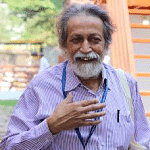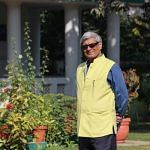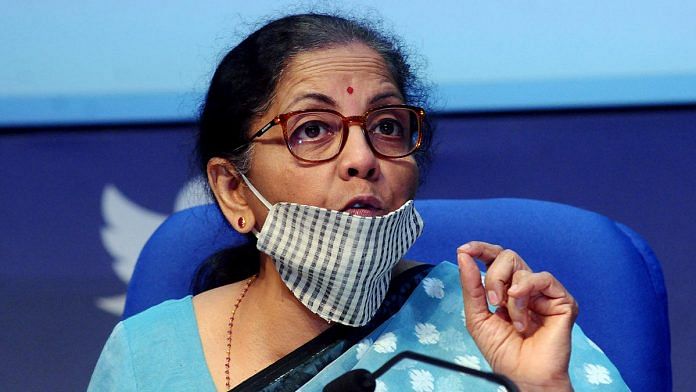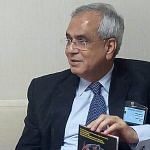PM’s woods, FM’s trees
Sanjaya Baru | Policy analyst and former media advisor to Prime Minister of India
The Indian Express
In his address to the nation 12 May, Prime Minister Narendra Modi spoke of his vision of a self-reliant India in a post-pandemic world. Baru argues that “it is not trade dependence that makes India vulnerable, but the inadequacy of its human capital.” According to him, Modi’s vision has four parts — an increase in public spending and investment, policy reforms to make the domestic economy more globally competitive, a structural shift to make the economy more self-reliant and the new kind of lockdown to be announced shortly, which will depend on the short-term success of the first three. Citing China’s example, Baru says, “it is possible to be both self-reliant and globalised… Trade in itself does not create dependence if a country is able to grow both exports and imports.”
Mathew Varghese | Consultant orthopedic surgeon, St Stephen’s Hospital, Delhi
The Indian Express
Listing examples of how China and Italy have slowly begun opening up despite a high number of cases, Varghese avers India will probably not go the way of either country. Although India has initiated one of the strictest lockdowns comparatively early on, cases have continued to rise. He argues that a lockdown, with all its other problems such as starvation, would not have been essential if testing and quarantining had been done efficiently and in a timely manner. He also underscores the inadequacy of India’s public healthcare system.“The way forward would be a graded and gradual opening up. No one can sustain this level of lockdown. But, while we open up we have to protect the vulnerable and ensure the known preventive measures,” Varghese concludes.
Why PM Modi’s address is historic
Rajiv Kumar | Vice-chairman, NITI Aayog
Hindustan Times
On Modi’s address to the nation on 12 May, when he announced a Rs 20 lakh crore economic package to revive the economy, the author says it marked the day “India embarked on the path of converting a global crisis into an opportunity to accelerate its economic transition and build on the solid foundations laid in the first term of this government.” Kumar goes on to say, “Overcoming conservative impulses within the establishment, he has paved the way for reforms.” Lauding the PM for the bold reforms in areas such as land, labour, liquidity and laws, he notes, “We have started a paradigm shift, which will take us in the direction of becoming a global player by focusing on our strengths and rooting our policies in our own ground realities.”


A plan to revive a broken economy
Harsh Mander | Human rights worker, writer and teacher
Jayati Ghosh | Professor of economics at JNU
Prabhat Patnaik | Professor Emeritus, Jawaharlal Nehru University The Hindu
The Hindu
Mander, Ghosh and Patnaik explains that “There are clear, implementable steps the Centre can take in fiscal terms to revive the economy and support livelihoods.” Breaking it down into four major steps, they highlight the urgent need to “provide free food and cash transfers to those rendered incomeless” and to revamp and expand the Mahatma Gandhi National Rural Employment Guarantee Act (MGNREGA) to accommodate workers hit by the lockdown. They argue for the need to revive Micro, Small and Medium Enterprises (MSMEs) in urban areas by introducing an Urban Employment Guarantee Programme, and finally, stress the importance of a “significant increases in public expenditure on education and health.”
Ajay Gudavarthy | Assistant Professor at Jawaharlal Nehru University
The Telegraph
Calling out PM Modi and his address on 12 May when he announced the stimulus package, Gudavarthy argues that “The current leadership under Modi has succeeded in giving meaning to suffering without attempting to ameliorate the suffering.” While acknowledging the importance of good oratory in a mass democracy, he critiques Modi for banking on this skill without any material support. Former PM Manmohan Singh, he says, was the opposite – the economy did well under him, but he lacked the oratorial and performative skills of Modi. Gudavarthy ends by asking, “Can an alternative story of human suffering be created and made integral to the existing cultural ethos and value systems?”

A painkiller for businesses and individuals, not a fiscal stimulus package
Haseeb Drabu | Former Finance Minister of Jammu and Kashmir
Mint
On Prime Minister Modi’s announcement of a Rs 20 lakh crore package, Drabu argues that it is a “helping hand; not a fiscal stimulus, less so a bailout”. He adds, “The purse strings haven’t been loosened, at least not just as yet. For those who assumed it to be a ₹20 trillion cash package, there will be not only be devils, but quite a few demons in the detail.” There are two elements to the package, one to address liquidity and the other to leverage money. Drabu maintains that this strategy is a “repackaged Nehruvian commanding heights” in a globalised world. He notes that with this stimulus announcement, the government has moved away from the “stifling and silly binaries of lockdown versus no lockdown, lives versus livelihood, and stimulus versus no stimulus.”
‘Aatmanirbhar’ in the sweatshop nation
R Srinivasan | Columnist
Hindu Business Line
Srinivasan maintains that the most “shameful” image of the coronavirus pandemic will be the possessions of migrant labourers lying scattered around railway tracks after they had been crushed under trains. He adds that giving legal sanction to the non-observance of bare minimum laws that cover the workers’ conditions of employment is a “dangerous move”. In fact, countries that have a transparent system of labour regulations actually perform better. He concludes, “Surely they [India Inc] must know that destroying worker trust and exploitation of the poor is no way to build a sustainable business.”
Marching into a contactless world
Nikhil Rajpal | CEO, Hero Electronix
Economic Times
Rajpal states that we need to find a contactless way of existing and flourishing in a post-Covid world, and the only way we will be able to do that is via technology. Our lives have already changed with everything from grocery shopping to social interactions being done online. Rajpal predicts that the work ecosystem will witness a “sea change”, as will how we live at home, with smart cameras, interconnected doorbells, keyless doors and more. He maintains that these technological disruptions would have happened irrespective of Covid, but the time taken to adopt them would have just been longer.

Robinson Crusoe’s skills: Because of the virus, some autarky vis-à-vis the external world is inevitable
Bibek Debroy | Chairman, Economic Advisory Council to the PM
Financial Express
Debroy suggests that Robinson Crusoe, with his presumably long hair, is a metaphor for self-reliance, which led to economists coining the phrase ‘Robinson Crusoe economy’. He argues that “Romanticism, protectionism and mercantilism notwithstanding, self-reliance is not a sensible idea. For some, it may be a moral ideal, as individuals. But growth, productivity and employment are about society’s economic goals, not morality.” Debroy maintains that in a labour market, reforms must be about decreasing rigidity in the organised sector, but also increasing and enforcing protection in the unorganised sector, and the two aspects need to be combined.

The lockdown hammer
Shankar Acharya | Executive Chairman of the Board of Directors of Kotak Mahindra Bank
Business Standard
The author states that the ongoing lockdown to beat Covid-19 has battered the Indian economy like nothing else before, not war or demonetisation. He cites a rolling houselhold survey by the Centre for Monitoring the Indian Economy that shows that 120 million Indian, or 30 per cent of the total labour force, lost their livelihoods. At the same time, revenues of states and centre have fallen 50 to 80 per cent. He “fervently hopes” the lockdown is lifted on 18 May, as he worries that the price of keeping the economy locked is too high to pay.





